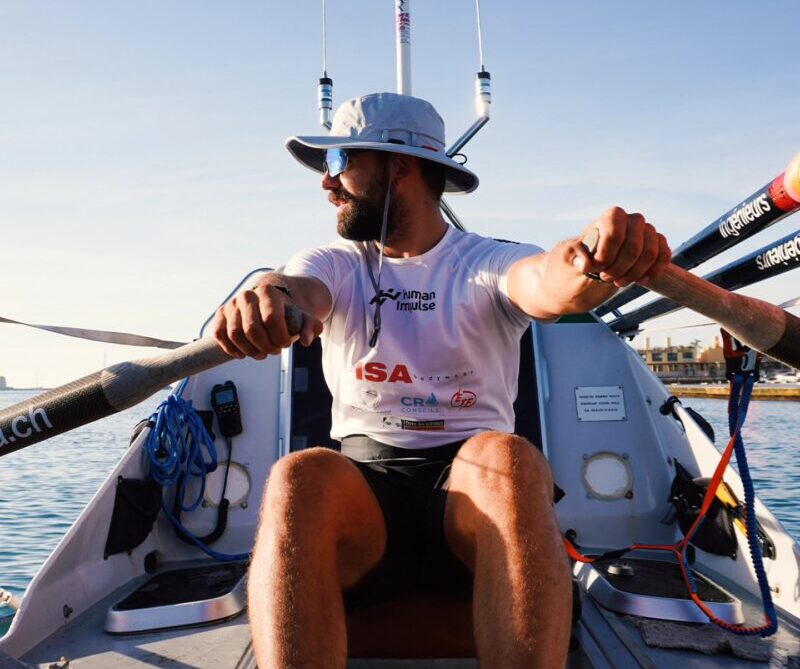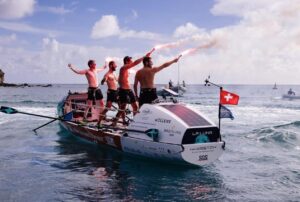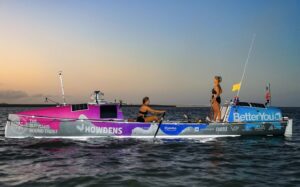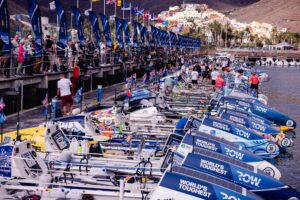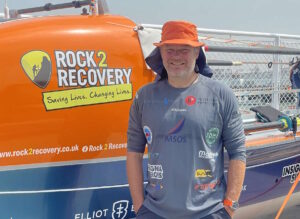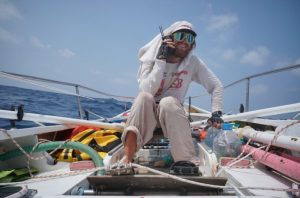Since our last roundup, two more soloists have taken to the ocean. One is attempting to break two records on the Atlantic; the other has begun the next leg of his round-the-world journey across the Pacific.
Atlantic Ocean
Zara Lachlan (UK) is rowing across the Atlantic from Lagos, Portugal, to French Guiana in South America. The 21-year-old hopes to become the first woman and youngest person to solo row from mainland Europe to South America.
Since starting on October 27, she has covered 835km of the 6,668km crossing. Rowing for 20 hours a day, she hopes to finish in 90 days but remains a little behind schedule. Getting away from the land at the start was tricky, and the weather has not cooperated.
Several times, winds forced her to deploy her para-anchor, and she ended up drifting in the wrong direction. Once, she had to stop for a full day and drifted so far back, it took her nine hours to make up the lost distance. On other days, the water had been so calm that she is barely moving. Progress was so slow that more bad weather has caught up with her. It is pushing her eastward toward the Canary Islands and Africa.
Pacific Ocean
Swiss adventurer Louis Margot has started the fourth leg of his round-the-world journey. Currently, he is rowing 6,746km from Callao, Peru to Hiva Oa in French Polynesia. He aims to make it around the globe by cycling and rowing. The record for a human-powered circumnavigation is five years and 11 days. He hopes to finish in three years.
On Sept. 3, 2023, he started cycling 2,500km from Switzerland to Portugal. From there, he rowed for 115 days to Columbia, then jumped back on his bike and cycled 4,030km to Peru in 62 days. Here, he took a two-month break to recover, reconnect with his family, restock, and repair his boat.
He started his second row on November 12. Margot aims to get to Indonesia but is unsure of his route after French Polynesia. He is debating whether to row to Australia, bike across it, and then continue to Indonesia, or go to Papua New Guinea and then island-hop to Indonesia.
The first week reintroduced him to the agonies of rowing. “My hands hurt, and my back is already broken,” he joked after one day at sea.
The ocean is so calm that the water and his boat are barely moving. Many ocean rowers get a reliable boost from trade winds or currents, but so far, every inch of forward progress is with the oars.
Aurimas Mockus of Lithuania is now five weeks into his own Pacific row. He started in San Diego, Calif. on October 15, bound for Brisbane, Australia. With 1,288km done, he has another nine-tenths of the distance to cover.
In the first few days, he struggled to pull away from the coastline of California. Finally, he made it out past Guadalupe Island and into the open ocean. That should be the last patch of land he sees for over 5,000km until he reaches Kiribati.
The weather over the last few weeks has been mixed. At first, it was against him, which meant slow progress and extra hours of rowing. Now, the opposite has happened. Strong winds have whipped up six-meter-high waves, which crash against the boat, but they are pushing him in the right direction. The only mishap occurred when a wave snapped one of his spare oars.
